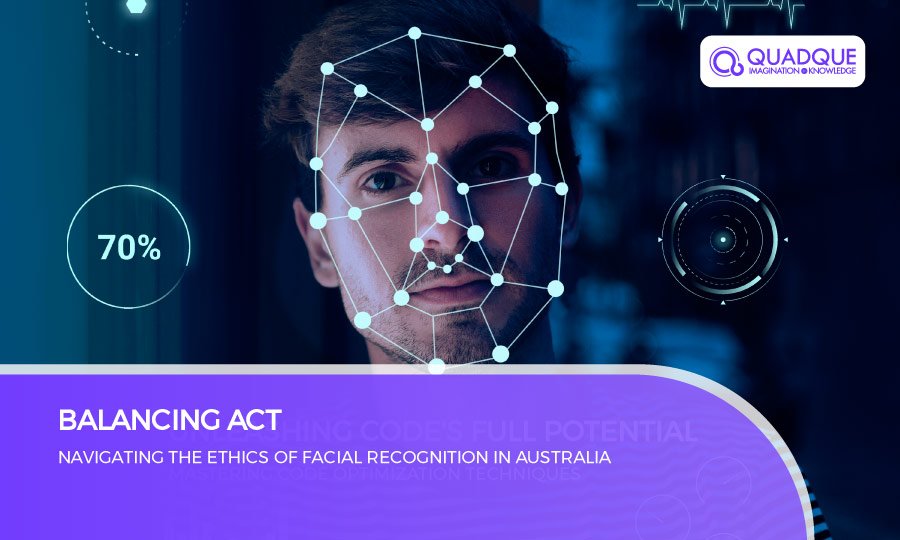
Ethical Dilemmas of Facial Recognition: Privacy and Security in Australia
Overview: The Ethical Quandary of Facial Recognition in Australia
In an age where technology seems to advance at the speed of thought, the integration of facial recognition systems into our daily lives has raised profound ethical questions. As we delve into this brave new world, we must navigate the intricate web of privacy, security, and societal implications that facial recognition technology brings to the forefront.
- Ethical Aspects of Facial Recognition Systems in Public Places
Facial recognition technology has infiltrated public spaces, promising convenience and efficiency. However, its ethical implications loom large. Imagine a world where cameras identify you as you walk down the street, triggering personalized advertisements or tracking your every move. This subtopic explores the intricacies of this ethical conundrum.
- Privacy Issues with Facial Recognition: A Closer Look
The right to privacy is a cornerstone of democratic societies. Facial recognition technology has the potential to erode this fundamental right. Picture a scenario where your face becomes a key that unlocks your entire life, from financial transactions to social interactions. We delve into the privacy concerns surrounding facial recognition and the implications for individuals in Australia.
III. Problems with Facial Recognition Technology: Unveiling the Challenges
While facial recognition holds promise, it is not without its challenges. Imagine a system prone to errors that can lead to misidentifications and false accusations. This subtopic dissects the technical limitations and potential biases of facial recognition technology, shedding light on its shortcomings.
- Facial Recognition Problems and Solutions: Finding a Middle Ground
Amid the concerns and challenges, there are potential solutions. Picture a world where facial recognition is harnessed for benevolent purposes, such as finding missing persons or enhancing security without compromising privacy. We explore innovative approaches and discuss the delicate balance between technological advancement and ethical considerations.
- Misuse of Facial Recognition Technology: A Dark Side
As with any powerful tool, facial recognition technology can be misused. Envision a scenario where it falls into the wrong hands, leading to surveillance abuse or invasive tracking. We examine real-life instances of misuse and discuss strategies to safeguard against such threats in Australia.
- Problems with Facial Recognition in Law Enforcement: A Complex Debate
Law enforcement agencies are increasingly turning to facial recognition technology to aid in their investigations. However, this development raises complex ethical questions. Imagine a world where your face can be scanned and matched against a criminal database without your consent. This subtopic delves into the challenges and controversies surrounding the use of facial recognition in Australian law enforcement.
VII. Striking the Balance: Ethical Guidelines for Facial Recognition in Australia
To ensure the responsible use of facial recognition technology, ethical guidelines are imperative. Picture a framework that safeguards privacy, prevents misuse, and upholds individual rights. We explore the development and implementation of ethical guidelines tailored to the Australian context.
In the grand tapestry of technological advancement, facial recognition stands as both a marvel and a challenge. It has the potential to enhance our lives in countless ways, from streamlining airport security to assisting in criminal investigations. However, it also poses significant ethical dilemmas that demand careful consideration.
Imagine facial recognition as a double-edged sword, capable of cutting through the complexities of our modern world with precision but also capable of causing harm if wielded recklessly. It's a tool that can empower or oppress, depending on how it's used.
To illustrate the privacy issues with facial recognition, consider the analogy of a one-way mirror. In the digital age, it's as if we are constantly being observed, but we have no way of knowing who is on the other side of the glass. Our actions and movements are recorded, analyzed, and stored, often without our knowledge or consent.
Consider the story of Jane, an ordinary Australian citizen. One day, Jane's face was scanned by a facial recognition camera while she was out shopping. Unbeknownst to her, this data was linked to her online presence, resulting in a barrage of targeted advertisements that seemed to know her every preference. Jane felt like she was living in a world where her face had become a commodity, a key to unlocking the digital realm.
The problems with facial recognition technology are not limited to privacy concerns. Inaccurate facial recognition can lead to devastating consequences. Imagine the heartache of being wrongfully accused of a crime due to a flawed algorithm. It's a nightmare scenario that has become a stark reality for some individuals.
In the realm of law enforcement, facial recognition technology has the potential to expedite investigations and locate missing persons. However, it also raises questions about civil liberties and the potential for abuse. Imagine a future where every step you take is tracked and analyzed, leading to a world where privacy is a distant memory.
The misuse of facial recognition technology can have chilling implications. Imagine a scenario where authoritarian governments use this technology to monitor and suppress dissent, eroding the very foundations of democracy. It's a stark reminder of the power that lies within the algorithms and databases that underpin facial recognition systems.
In conclusion, the ethical aspects of facial recognition systems in public places are a complex puzzle that requires careful deliberation. As we stand on the precipice of a technology-driven future, it's essential to strike a balance between the benefits and risks of facial recognition. By addressing privacy issues, acknowledging the problems, and implementing ethical guidelines, we can navigate this intricate landscape and ensure that facial recognition in Australia serves the greater good while upholding our fundamental rights.
Recent Posts
- Sustainable Graphic Design for 2024 and Beyond
- Profit Power: Maximizing Revenue Growth with CRM Software
- Medical and Elderly Care in the UK: Strategies for Sustainable Growth
- Securing Educational Excellence: IT Support for the Digital Era
- Tech Transformation: The Untold Story of Bangladesh’s Innovation Hub
Recent Comments
Latest Post
Categories
- AI
- Biometric
- Blockchain
- Cloud Computing
- CRM
- custom software
- Cybersecurity
- Data Analysis
- Datacenter Management
- Designer
- Digital Marketing
- Education
- health care
- Informative
- ISP Management
- IT Procurement
- IT Recruitment
- IT Support
- Mobile App
- Network Management
- Robotics Landscape
- SAP ERP
- SEO
- Structured Cabling
- Tech Australia
- Tech bangladesh
- Technology
- tourism
- Uncategorized
- Web Development


